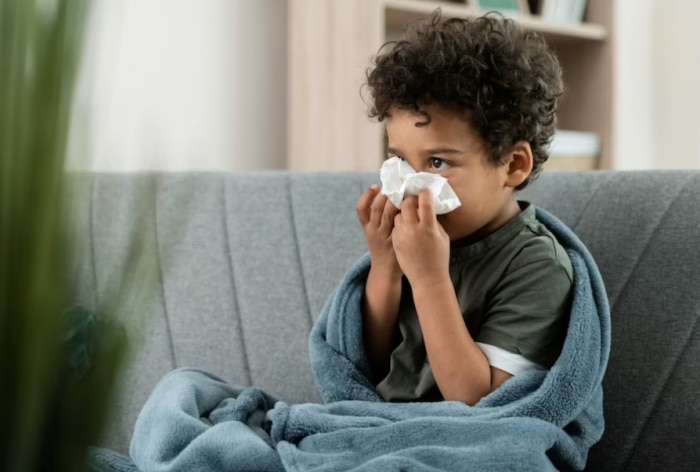As heavy rains continue to pour in cities, the occurrence of monsoon-related illnesses has increased nationwide. One such illness is viral respiratory infection, which has seen a rise alongside fungal infections. Vulnerable groups, including children, senior citizens, pregnant women, and individuals with existing health conditions, are most at risk.
Respiratory Syncytial Virus Infection (RSV) poses a significant threat to young children. Dr. Chandrasekhar Singha, a Senior Consultant and Incharge of Pediatric Critical Care at Madhukar Rainbow Children’s Hospital, explains that RSV primarily affects babies, newborns, and toddlers due to their still-developing respiratory systems. Once infected with RSV, children may struggle to take deep breaths and receive enough oxygen, leading to respiratory problems. Symptoms typically appear within four to six days of infection and may include coughing, sneezing, fever, sore throat, breathing difficulties, weakness, wheezing, and whistling sounds while breathing. Immediate medical attention should be sought if a baby exhibits these symptoms, as they can be hazardous for their health.
RSV spreads through aerosols in the air and direct contact. Contaminated surfaces or objects can transmit the virus if individuals touch them and then touch their nose or mouth. The highly contagious nature of RSV means it can easily spread in crowded places like malls, schools, and daycare centers. RSV infections are more common during weather transitions, especially between summer and monsoon seasons, when respiratory issues are prevalent. Prematurely born or weak infants are at a higher risk of RSV infection, which can result in bronchiolitis, pneumonia, or other respiratory problems requiring hospital treatment. RSV can be life-threatening for babies under six months old.
Taking preventive measures is crucial to protect children from RSV infections. Regular handwashing is essential, as it helps prevent the spread of RSV and other infections. Avoiding close contact with sick individuals, disinfecting frequently touched objects, covering coughs and sneezes, and avoiding crowded places during RSV season are all effective preventive measures. Breastfeeding provides infants with antibodies that offer protection against infections, including RSV. While there is no specific RSV vaccine, immunization against other preventable illnesses like influenza can reduce the risk of respiratory complications in children. Maintaining a clean and hygienic environment also minimizes exposure to infectious agents.
It is important for parents and caretakers to be aware of the signs, risks, and prevention of RSV to ensure the safety of their children. Practicing good hygiene and avoiding places with high germ concentrations can help prevent the spread of RSV. Stay updated with the latest information by subscribing to our newsletter.

